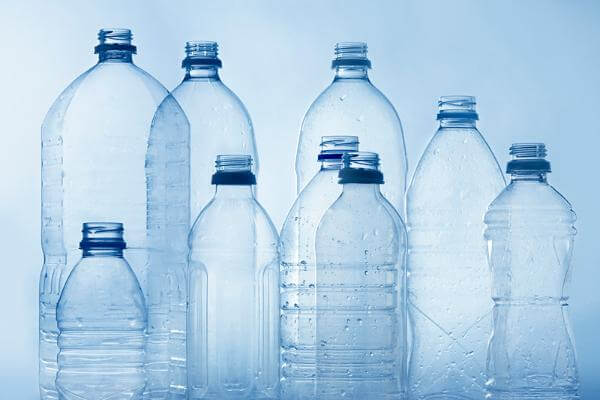In recent years, bottled water has become a fixture of daily life for many people. Whether it’s a quick grab from a convenience store or handed out at events, plastic water bottles are everywhere. But what often goes unnoticed is the significant environmental cost behind the convenience. From production to disposal, bottled water leaves a lasting footprint on our planet. Fortunately, more sustainable options, like choosing a water trailer rental station, offer practical alternatives that help reduce waste and support eco-conscious habits.
The Hidden Footprint of Bottled Water
At first glance, a single plastic water bottle doesn’t seem like much. However, when you zoom out to a global scale, the numbers become staggering. It’s estimated that over 1 million plastic bottles are bought around the world every minute. Most of these are used once and discarded, contributing to a growing crisis in waste management and environmental pollution.
Production and Energy Costs
Producing bottled water isn’t as simple as bottling spring water and shipping it out. The manufacturing process requires substantial energy to extract, process, bottle, and transport the water. According to studies, it takes about three times as much water to make a plastic bottle as it does to fill it. The energy used in production comes mostly from fossil fuels, further contributing to greenhouse gas emissions.
Additionally, transporting bottled water across states or even countries adds to its carbon footprint. Many bottles travel thousands of kilometers from the source to store shelves, increasing dependency on nonrenewable energy sources.
Plastic Waste and Landfills
Perhaps the most visible impact of bottled water is plastic waste. Even in areas with recycling programs, only a fraction of bottles actually get recycled. Most end up in landfills, incinerators, or worse—in rivers, oceans, and natural habitats.
Plastic takes hundreds of years to break down, and in the meantime, it fragments into microplastics, which are now found in everything from marine life to the human bloodstream. These particles pose risks to wildlife and potentially to human health, though the long-term effects are still being studied.
Environmental Costs Beyond the Bottle
While plastic waste is the most obvious issue, the environmental impact of bottled water extends further. Extracting groundwater or spring water for bottling can deplete local sources and disrupt ecosystems. Communities near bottling plants often experience reduced access to clean water, especially in drought-prone areas.
Moreover, the labeling and marketing of bottled water often misleads consumers into thinking it’s cleaner or safer than tap water, even though municipal supplies in many countries are heavily regulated and tested.
Rethinking Convenience: What Can We Do?
The good news is that consumers have more choices than ever to reduce reliance on bottled water. Here are some impactful ways to shift toward sustainability without sacrificing convenience:
1. Use Reusable Water Bottles
Switching to a stainless steel or BPA-free plastic reusable bottle drastically cuts down on plastic waste. Keeping one in your bag, car, or office ensures you always have access to water without needing to buy a bottle. For customizable and eco-friendly bottled water solutions, mylabelwater.com offers options that align with sustainable living while promoting your brand.
2. Install Water Filters at Home
One of the biggest reasons people turn to bottled water is taste or concerns about contaminants. But affordable water filtration systems can improve taste and safety right at home. Whether it’s a pitcher filter, faucet attachment, or under-sink system, the cost is quickly offset by the savings from not buying bottled water.
3. Choose Public Refill Stations
More cities, parks, and institutions are installing public hydration stations. These allow people to refill bottles for free, often with filtered water. Encouraging local governments or schools to invest in these stations is another way to promote accessible, clean water.
4. Opt for Sustainable Event Solutions
If you’re organizing a large event, festival, or community gathering, consider alternatives to handing out bottled water. One eco-friendly option is to rent a water trailer rental station, which provides high-capacity, portable water access. These stations encourage attendees to bring reusable bottles and dramatically reduce plastic waste during events.
The Ripple Effect of Consumer Choice
You might think that one person choosing to avoid bottled water won’t make much of a difference. But consumer behavior has a powerful ripple effect. The bottled water industry is highly responsive to market trends. As more people shift toward sustainable habits, companies take notice—and innovate.
Just as consumers helped fuel the rise of bottled water, they also hold the power to drive change in the opposite direction. For example, many colleges and corporate campuses now ban bottled water sales altogether and install refill stations throughout their facilities.
Additionally, choosing reusable solutions supports a culture of mindfulness around resource use. It encourages more sustainable decisions across other parts of life—from how we shop to how we travel.
Policy and Community Support
Beyond personal changes, real progress also requires community and policy action. Advocating for better recycling infrastructure, stricter regulation on plastic production, and increased investment in public water systems can magnify individual efforts.
Some cities have already taken bold steps. San Francisco, for instance, banned the sale of single-use plastic water bottles on public property. Other municipalities are following suit, recognizing that systemic change begins with strong local action.
Communities can also support initiatives that educate the public on the value of tap water and the hidden costs of bottled water. Campaigns that raise awareness about the environmental and financial benefits of refillable solutions help shift social norms and make sustainable behaviors the default.
Rethinking the Culture of Convenience
Modern culture is heavily centered on convenience, often at the expense of sustainability. Bottled water fits neatly into this mold: it’s easy to grab and easy to dispose of. But it comes with a hidden cost that our planet can no longer afford.
Changing our mindset from one of disposable ease to thoughtful consumption is key. It doesn’t require massive sacrifice—just conscious choices. Carrying a reusable bottle, seeking out refill stations, and supporting local clean water efforts are small steps that add up.
Ultimately, reducing our reliance on bottled water is less about doing without and more about doing better. It’s about embracing solutions that are not only good for the environment but also good for our health, our communities, and future generations.




